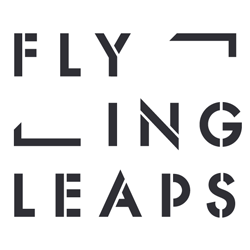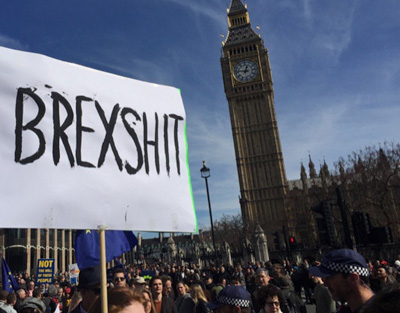Protests against the Monarchy and animal cruelty (see swan and corgi ref.s above and, btw, he didn’t kill either animal) plus the extraordinary stamina called for, not to mention nasal skin lost, during the course of his monkey nut protest against the introduction of student tuition fees aside, McGowan is a sanguine soul.
Once the dark glasses are off and the artist becomes ‘himself’ we are met with, yes a committed and campaigning voice but moreover a curious, gentle, boundlessly empathetic individual. One who gives his subjects plenty of time and scope to express themselves as to the personal and societal fallout from the Brexit campaign and its subsequent blundering enforcement. These ‘straight’ interviews conducted, vox pop style, are usually longer than his Artist Taxi Driver rants: sustained, investigative on both an intimate and political level, explicating ideas and argument, teasing out the lived experience and professional knowledge that has led hundreds – probably thousands by the time McGowan’s finished – to arrive at the considered positions they’ve come to hold in light of the UK careering toward Brexit.
And while we know that not all Leave voters did so for malign reasons Brexshit The Movie is shaping up to be an exercise in mass observation that can remind those who voted out on ‘patriotic’ grounds two things. First that they will be the ones who are likely to materially suffer the most from Brexit. More importantly that remaining in close concert with Europe is not antithetical to being proud of one’s country, culture and peoples. Rather listening to the heartfelt, powerful and reasoned voices of McGowan’s interviewees suggest that a decent strain of patriotism sides with openness to and cooperation with Europe and the rest of the world. Not a retreat into myopic, mean-spirited isolation.





